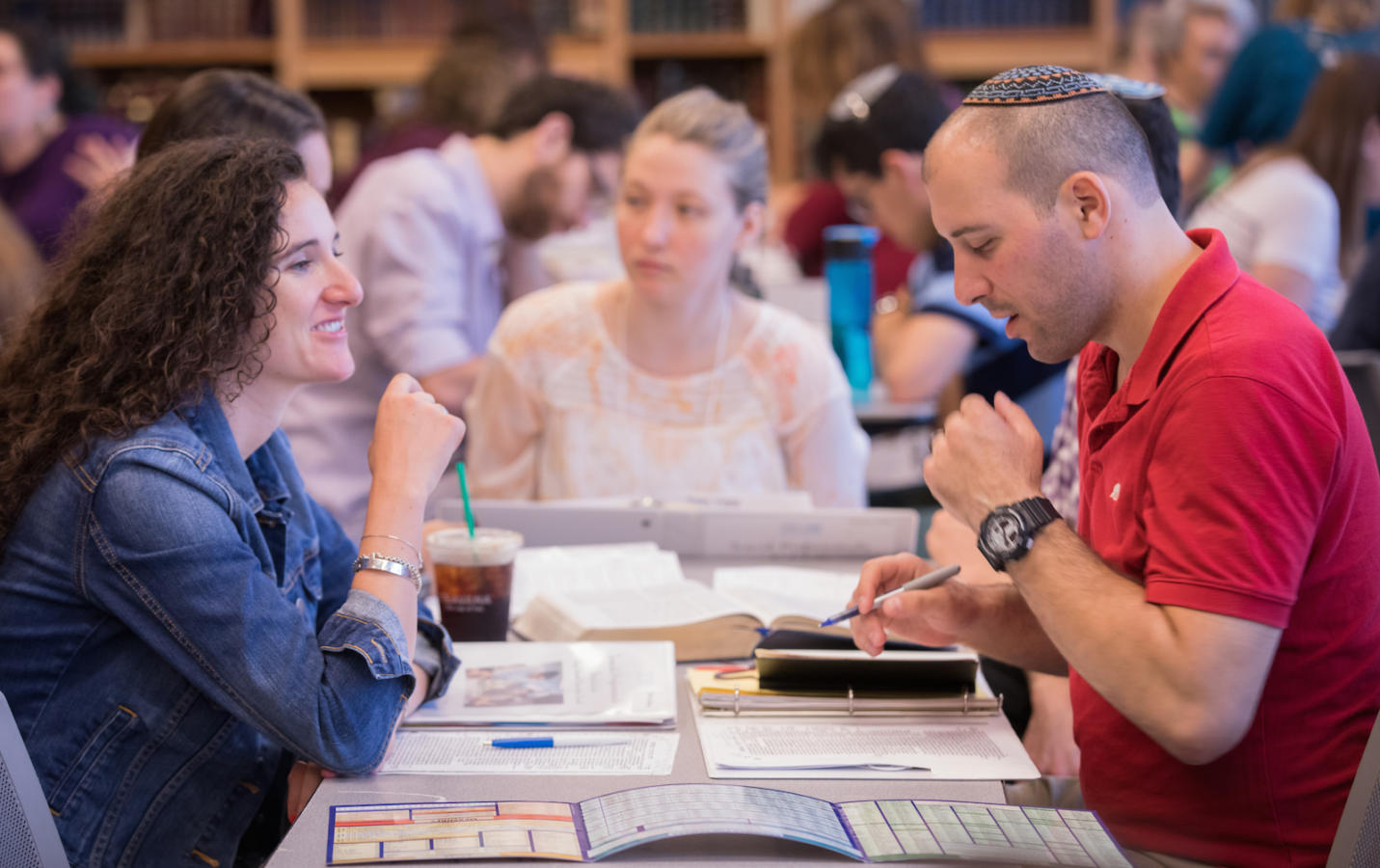Following the Shavuot holiday meal, many people proceed to synagogue for Ma’ariv [the evening service], followed by an all-night (or into-the-night, as many last only until midnight) Torah study session based on the kabbalists‘ [mystics’] practice. [This specifically refers to the 16th-century mystics of Safed, Israel, under the leadership of Isaac Luria. Many people recite Ma’ariv before the meal, go home to eat, and return to synagogue for the study session. All in all, Tikkun Leil Shavuot is a relatively recent development.]
We remain awake to show that, unlike the situation of our heavy-lidded ancestors at Sinai, there is no need to bring us to our senses; we are ready to receive Torah. The tikkun (which refers both to the study session and to the text used for it) was the only observance developed specifically for Shavuot. (Although tikkuns were later introduced for Passover and Hoshanah Rabbah — which is part of Sukkot, the Festival of Booths — this is the one most widely observed.)
In addition to wanting to compensate for the Israelites, the mystics had the idea that at midnight the heavens open and favorably receive the thoughts, study, and prayers of those who remain awake on the anniversary of the Revelation. (Some promoted the legend that, as on Hoshanah Rabbah, wishes are fulfilled at that moment. The Moroccan Jews believed staying up all night guaranteed you life for the next year.) It was likened to the hours of preparation prior to a wedding. The chapter headings in the anthology used for study were said to represent the jewels used to adorn a bride prior to her marriage, and the tikkun process was the bedeken ceremony (when the groom verifies the identity of his bride and places the veil over her face), which precedes the wedding.
Through the ages, scholars have observed the tikkun, but among the learned who knew how to study traditional text, it was also common to devote the time to Talmud. Today, the tikkun might consist of a series of seminars on a variety of topics based on ancient or modern texts, Jewish history, or current events. In Israel, the Western Wall is a popular site for the study session. In the United States, in addition to communal settings, a tikkun especially for children may take place at home, in which age-appropriate books and Bible stories can be the basis for activities and discussion. (There is no reason a group of adults cannot get together to study in someone’s home, and while you may not want to do it late at night, there is also no reason it cannot become an ongoing activity.) Refreshments such as cheesecake and coffee are usually served. Breakfast might follow a sunrise Shaharit [morning] service for those who participated in a communal study group.
Excerpted from Celebrate! The Complete Jewish Holiday Handbook. Reprinted with permission from Jason Aronson Inc.
Shavuot
Pronounced: shah-voo-OTE (oo as in boot), also shah-VOO-us, Origin: Hebrew, the holiday celebrating the giving of the Torah at Mount Sinai, falls in the Hebrew month Sivan, which usually coincides with May or June.
Torah
Pronunced: TORE-uh, Origin: Hebrew, the Five Books of Moses.



